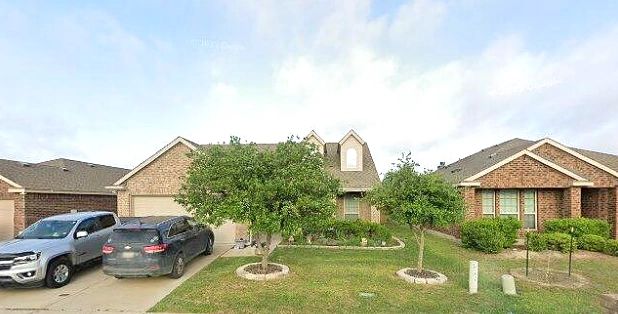Discovering the Perfect Houses for Rent: Your Ultimate Guide
In the quest for a new home, finding the perfect house for rent can be both exciting and daunting. Whether you’re relocating for work, seeking a change of scenery, or simply looking for a temporary abode, understanding the rental market is crucial. This guide provides comprehensive insights into finding houses for rent, ensuring you make informed decisions and secure the best deal possible.
Key Takeaways
- Understanding your budget and needs is crucial when searching for houses for rent.
- Researching neighborhoods and rent trends can help you make informed decisions.
- Knowing your rights as a tenant ensures a smoother rental experience.
- Utilizing online platforms and local resources can simplify your search.
Understanding the Rental Market
The rental market is a dynamic landscape, influenced by various factors such as location, economic conditions, and housing demand. As you embark on your search for houses for rent, it’s essential to grasp the current market trends. This knowledge will empower you to negotiate better deals and avoid common pitfalls.
Factors Influencing Rent Prices
Several elements can affect the pricing of rental properties:
- Location: Proximity to city centers, schools, and amenities can significantly impact rent prices.
- Size and Condition: Larger homes or those with modern amenities generally command higher rents.
- Market Demand: High demand areas often see increased rent prices, especially in peak moving seasons.
- Economic Factors: Inflation and interest rates can indirectly affect rental prices.
Setting Your Budget
Before diving into the rental market, it’s crucial to establish a clear budget. Consider not only the monthly rent but also additional costs such as utilities, maintenance, and insurance. A general rule of thumb is to allocate no more than 30% of your monthly income to housing expenses.
Calculating Additional Costs
Beyond the monthly rent, consider these additional expenses:
- Utilities: Water, electricity, gas, and internet can add up quickly.
- Maintenance: Some rental agreements require tenants to cover minor repairs or upkeep.
- Insurance: Renters insurance can protect your belongings against theft or damage.
Choosing the Right Neighborhood
The neighborhood you choose can greatly affect your living experience. Researching different areas will help you find a location that suits your lifestyle and needs.

Factors to Consider
When evaluating neighborhoods, consider the following:
- Safety: Check crime rates and local safety measures.
- Schools: If you have children, research the quality of nearby schools.
- Commute: Consider the distance and time required to travel to work or other frequent destinations.
- Amenities: Look for nearby grocery stores, parks, and entertainment options.
Utilizing Online Platforms

In today’s digital age, online platforms have become indispensable tools for finding houses for rent. Websites and apps offer a plethora of listings, often complete with photos, descriptions, and virtual tours.
Popular Rental Websites
Consider using these platforms to streamline your search:
- Rental Listing Sites: Websites dedicated to rental properties offer extensive search filters to narrow down options.
- Real Estate Apps: Mobile apps provide on-the-go access to new listings and updates.
- Social Media: Community groups on platforms like Facebook can offer exclusive listings and local insights.
Inspecting Potential Rentals
Once you’ve shortlisted potential houses for rent, it’s essential to conduct thorough inspections. This step ensures that the property meets your expectations and is free from major issues.
What to Look For
During inspections, pay attention to:
- Structural Integrity: Check for signs of damage, such as cracks or water leaks.
- Appliances: Ensure all included appliances are in working order.
- Security Features: Look for secure locks, alarm systems, and adequate lighting.
- Pest Control: Be wary of signs of pest infestations.
Understanding Tenant Rights
Familiarizing yourself with tenant rights is vital to protect yourself legally and financially. Knowing your rights can prevent disputes and ensure a harmonious relationship with your landlord.

Key Tenant Rights
Common rights include:
- Right to Privacy: Landlords must provide notice before entering your rental property.
- Habitability: The property must be safe and livable, with necessary repairs addressed promptly.
- Fair Treatment: Discrimination based on race, gender, or other protected characteristics is illegal.
- Lease Agreement: Ensure you have a written lease outlining terms and conditions.
Negotiating Your Lease
Negotiating lease terms can lead to more favorable conditions and potentially lower rent. Approach negotiations with confidence and clear objectives.
Tips for Successful Negotiation
Consider these strategies:
- Research: Know the average rent prices in the area to leverage during discussions.
- Highlight Strengths: Emphasize your reliability as a tenant, such as a stable income or strong rental history.
- Be Flexible: Offer compromises, such as a longer lease term, in exchange for reduced rent.
- Request Upgrades: Ask for improvements, like fresh paint or new appliances, as part of the agreement.
Finalizing Your Rental Agreement
Once you’ve agreed on terms, it’s time to finalize the rental agreement. Carefully review the lease to ensure all negotiated terms are included and clearly stated.
Important Lease Clauses
Pay attention to these key clauses:
- Rent Details: Confirm the rent amount, due date, and acceptable payment methods.
- Security Deposit: Understand the terms for deposit return and potential deductions.
- Maintenance Responsibilities: Clarify who is responsible for repairs and upkeep.
- Termination Conditions: Know the conditions under which the lease can be terminated.
Finding the perfect house for rent involves thorough research, budgeting, and understanding your rights and responsibilities as a tenant. By following the steps outlined in this guide, you’ll be well-equipped to navigate the rental market and secure a home that meets your needs and preferences. Remember, the key to a successful rental experience is preparation, communication, and a clear understanding of your priorities.